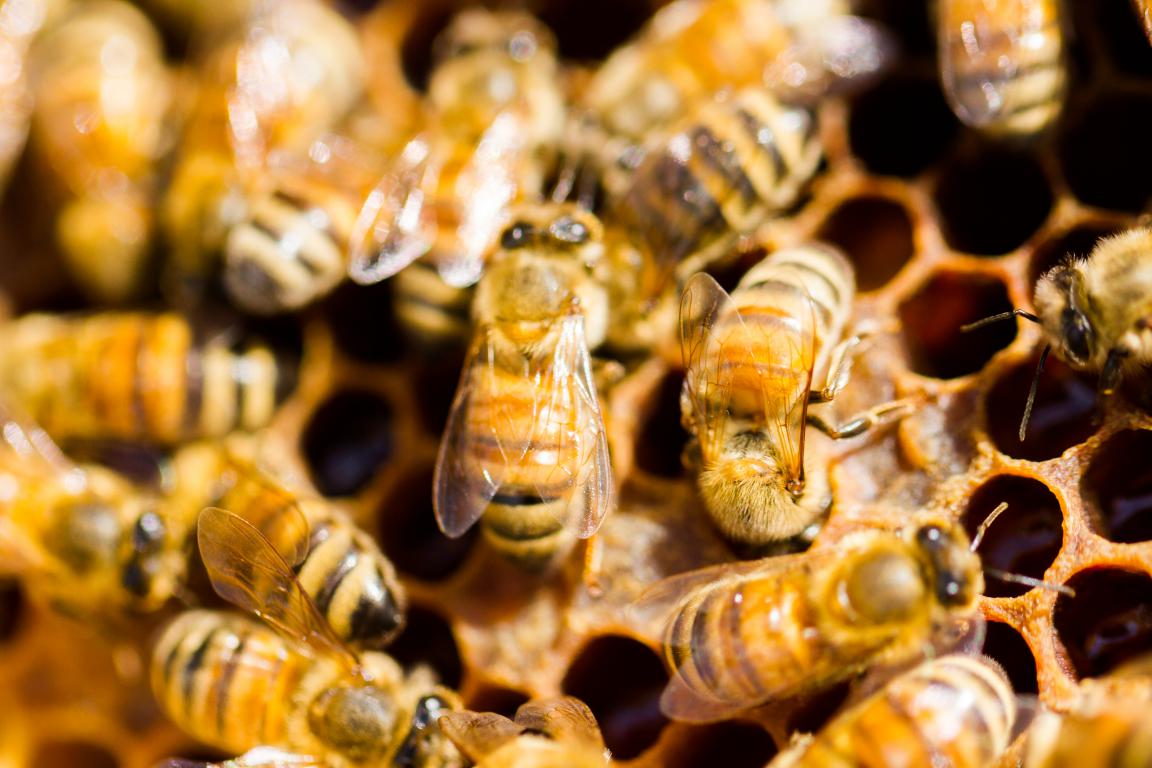Bio-degradable cards
Every card imaginable!
|
Bio-degradable cards Every card imaginable! Bee Sting Allergy: Symptoms, Causes and Prevention
Understanding Bee Sting Allergies: Symptoms and CausesA bee sting allergy can be a significant medical condition, impacting a substantial number of individuals globally. In allergic individuals, the immune system mounts an exaggerated response to the venom components introduced during a bee sting. This section aims to provide clarity on the various symptoms and the fundamental causes underlying bee sting allergies.
What are the common symptoms of a bee sting allergy?The symptoms associated with a bee sting allergy can range significantly in intensity, largely dependent on the severity of the individual's immune response. Localized mild symptoms typically involve reactions at the sting site, characterized by redness, swelling, and localized pain. In contrast, severe systemic allergic reactions, medically termed anaphylaxis, can manifest with a rapid onset of symptoms affecting multiple body systems. These may include respiratory distress, such as difficulty breathing, wheezing, or tightness in the chest; widespread skin reactions like hives (urticaria) or generalized itching; cardiovascular symptoms such as dizziness, lightheadedness, a rapid or irregular heartbeat, or a sudden drop in blood pressure; and gastrointestinal symptoms like nausea, vomiting, or abdominal cramps. Anaphylaxis constitutes a life-threatening medical emergency, necessitating immediate medical attention.
What causes an allergic reaction to bee stings?An allergic reaction to bee stings originates from the body's immune system mistakenly identifying specific proteins within the bee venom as dangerous substances. In all individuals, bee venom contains compounds that naturally cause localized pain and swelling. However, in those with a bee sting allergy, their immune system has become sensitized to these venom proteins. Upon subsequent stings, the immune system overreacts by rapidly releasing potent chemicals, most notably histamine, along with other inflammatory mediators. These chemicals trigger a cascade of events throughout the body, leading to the diverse and potentially severe allergic symptoms observed.
How can I tell the difference between a normal reaction and an allergic one?Distinguishing between a normal physiological reaction to a bee sting and an allergic response is crucial for appropriate management. A normal reaction is typically confined to the area immediately surrounding the sting site, presenting as localized redness, swelling, and pain that usually resolves within a few days without spreading. In contrast, an allergic reaction is characterized by symptoms that extend beyond the sting site or involve systemic effects. These may include widespread hives or itching over the body, swelling in areas distant from the sting (e.g., face, lips, throat), respiratory difficulties, dizziness, abdominal pain, or a general sensation of weakness or impending doom. Any symptom beyond a localized reaction should raise suspicion of an allergy.
Are bee sting allergies hereditary?While allergies in general are recognized to have a genetic component, meaning a predisposition can run in families, the direct inheritance of a specific bee sting allergy is not as straightforward. There is indeed evidence suggesting that if close family members have a history of allergies, including insect sting allergies, an individual may have an elevated genetic likelihood of developing an allergy themselves. However, it is important to understand that environmental factors, such as the frequency and intensity of exposure to bee stings, also play a significant role in the actual development and manifestation of a bee sting allergy. Therefore, while genetics can increase susceptibility, they do not guarantee the development of the allergy, nor does a lack of family history preclude it.
Diagnosing and Treating Bee Sting AllergiesIf you suspect you have a bee sting allergy, it’s crucial to understand how to get diagnosed and manage potential reactions. Early diagnosis and preparation can make a significant difference.
How is a bee sting allergy diagnosed?The diagnosis of a bee sting allergy is primarily conducted by an allergist or immunologist, specialists in allergic conditions. The diagnostic process typically involves a combination of a detailed medical history, focusing on past sting reactions, and specific allergy tests. The most common diagnostic methods include a skin prick test, where a small amount of diluted bee venom extract is applied to the skin to observe for a localized allergic response, and a blood test (specific IgE test or RAST) which measures the level of antibodies (IgE) in the bloodstream that are reactive to bee venom. If an individual has experienced a severe systemic reaction to a past bee sting, consulting a specialist for these comprehensive evaluations is highly recommended to confirm the allergy and develop an appropriate management plan.
What should I do if I get stung and I’m allergic?Immediate and appropriate action is critical if an individual with a known bee sting allergy is stung. If symptoms indicative of anaphylaxis, such as difficulty breathing, widespread hives, swelling of the face or throat, dizziness, or a rapid pulse, begin to appear, an adrenaline (epinephrine) auto-injector (e.g., EpiPen, Auvi-Q) should be administered without delay, as prescribed. Following the injection, emergency medical services (e.g., calling 911 or your local emergency number) must be contacted immediately, even if symptoms appear to improve, due to the risk of a biphasic reaction. For individuals experiencing only mild, localized symptoms, the stinger should be removed as quickly as possible (e.g., by scraping it off with a fingernail or credit card rather than squeezing), the area cleaned with soap and water, and a cold compress applied to help reduce swelling and discomfort.
Can a bee sting allergy be treated or cured?While there is currently no outright cure that completely eliminates a bee sting allergy, there is an highly effective long-term treatment option known as venom immunotherapy (allergy shots). This treatment regimen can significantly reduce an individual's sensitivity to bee venom over time, thereby decreasing the severity of future allergic reactions and, in many cases, providing protection against life-threatening anaphylaxis. Venom immunotherapy involves a series of regular injections containing gradually increasing amounts of purified bee venom extracts. This process systematically desensitizes the immune system, teaching it to tolerate the venom and build up immunity, typically over a period of three to five years.
What medications are used to manage bee sting allergies?The management of bee sting allergies involves a combination of medications for both acute symptom relief and emergency intervention. For mild, localized symptoms such as itching, redness, and swelling, oral antihistamines (e.g., diphenhydramine, loratadine) can be used to help alleviate discomfort. Non-steroidal anti-inflammatory drugs (NSAIDs) or pain relievers can also address pain. However, for severe, systemic allergic reactions, an adrenaline (epinephrine) auto-injector is the cornerstone of emergency treatment and must be carried by allergic individuals at all times. This medication works rapidly to counteract anaphylactic symptoms by constricting blood vessels, relaxing airway muscles, and reducing swelling. In some cases, particularly after a serious anaphylactic event, corticosteroids may be prescribed for a short duration to help reduce lingering inflammation and prevent a delayed reaction.
Preventing Bee Stings and Minimising RisksPrevention is key for those with bee sting allergies. By being cautious and prepared, you can reduce the likelihood of being stung and ensure you’re ready to respond if it happens.
How can I avoid getting stung by a bee?Minimizing exposure to bees is the most effective strategy for preventing stings. When outdoors, it is advisable to wear light-coloured, smooth-textured clothing, as dark or brightly patterned garments and rough fabrics can attract bees. Avoiding strong-smelling products such as perfumes, colognes, scented lotions, and hairsprays is also crucial. Bees are often drawn to food sources, so staying away from flowering plants, fruit trees, open rubbish bins, compost piles, and uncovered sugary drinks or food is recommended. If a bee approaches, the best course of action is to remain calm and move away slowly and deliberately; sudden movements or swatting at the bee can provoke it to sting defensively. When driving, keep car windows closed to prevent bees from entering the vehicle.
What should I carry with me if I have a bee sting allergy?For individuals with a diagnosed bee sting allergy, preparedness is paramount. It is absolutely essential to always carry at least one, and preferably two, adrenaline (epinephrine) auto-injectors (e.g., EpiPen, Auvi-Q) as prescribed by a healthcare professional. These devices deliver a life-saving dose of adrenaline in the event of a severe allergic reaction. Additionally, carrying an oral antihistamine tablet can help manage milder symptoms. To ensure immediate and appropriate care in an emergency, it is highly advisable to carry a Bee Sting Allergy Card or wear medical alert jewelry. This clearly communicates your allergy to others, particularly first responders, who can then administer aid effectively.
Are certain times of the year worse for bee stings?The activity levels of bees, and consequently the risk of stings, are directly linked to environmental temperatures and the availability of food sources. Bees are generally most active during the warmer months of the year, predominantly late spring, throughout summer, and into early autumn. During these periods, bees are frequently out foraging for nectar and pollen, increasing the likelihood of human encounters. Therefore, individuals with bee sting allergies should exercise heightened caution and implement all preventative measures, especially when participating in outdoor activities or spending time in gardens, parks, or rural areas during these peak seasons.
Do bee sting allergies worsen over time?For some individuals, a bee sting allergy can indeed become more severe with each subsequent sting, a phenomenon often described as increasing sensitization. The immune system's response can intensify with repeated exposures to the venom, potentially leading to more rapid-onset and more severe allergic reactions over time. If you have experienced any form of allergic reaction to a bee sting in the past, regardless of its initial severity, it is crucial to seek medical advice from an allergist. They can perform diagnostic tests to confirm the allergy and provide guidance on carrying appropriate emergency medications, such as an adrenaline auto-injector, to manage any future reactions effectively and safely.
Bee Stings and Everyday LifeLiving with a bee sting allergy involves careful planning but doesn’t have to limit your activities. Understanding how this allergy affects your daily life can help you manage it effectively.
Can children outgrow bee sting allergies?In some cases, children diagnosed with a bee sting allergy may indeed outgrow their sensitivity as they mature, but this outcome is not universal or guaranteed for every child. The likelihood of outgrowing an allergy can vary depending on individual factors and the initial severity of the reaction. Regular follow-up and re-evaluation by an allergist are essential to monitor the child's immune response. Through periodic skin prick tests or blood tests, an allergist can determine whether the allergy has resolved or if it persists, providing updated guidance on management and precautions as the child grows older.
Can I keep bees if I have a bee sting allergy?Engaging in beekeeping activities when you have a bee sting allergy inherently carries significant risks due to the very high probability of being stung. While it's not strictly impossible, it is generally strongly discouraged or requires extreme caution and extensive preventative measures. If you possess a strong passion for beekeeping, it is crucial to have a comprehensive discussion with an allergist. They can advise on strategies to minimize risk, which might include the use of advanced protective gear, stringent protocols for handling bees, and potentially undergoing venom immunotherapy. Immunotherapy can significantly reduce your sensitivity and the severity of potential allergic reactions, thereby lowering the danger associated with beekeeping.
Can other stinging insects cause the same reaction?Yes, other stinging insects belonging to the Hymenoptera order, such as wasps, hornets, yellow jackets, and fire ants, can indeed trigger similar allergic reactions in individuals allergic to bee stings. While the specific protein composition of their venoms differs from that of bees, they often contain similar allergenic components that can provoke the immune system in a sensitized individual. This cross-reactivity means that an allergy to one type of stinging insect venom may predispose an individual to react to others. Therefore, if you have a confirmed bee sting allergy, it is highly advisable to discuss with your allergist the possibility of testing for sensitivities to these other common stinging insects to ensure comprehensive protection and preparedness.
What should I do if I’m stung far from medical help?If you are stung by a bee in a remote area where immediate medical assistance is not readily available, prompt self-management is critically important. The first and most crucial step, especially if you experience any symptoms beyond a localized skin reaction, is to immediately administer your adrenaline (epinephrine) auto-injector as prescribed. This medication is your primary defense against anaphylaxis. After using the auto-injector, take an oral antihistamine tablet to help manage less severe symptoms. While administering self-care, simultaneously try to establish contact with emergency services as soon as physically possible, even if it requires moving to an area with cell service. Provide them with your exact location and details of your condition. Stay calm, monitor your symptoms closely, and prepare for potential secondary reactions while awaiting professional medical help.
© 2024 The Card Project Uk Ltd
VAT: 453 2087 06
|